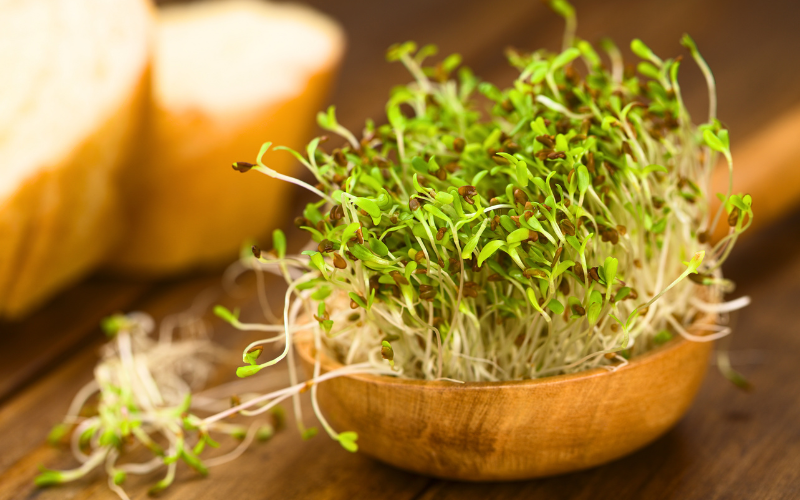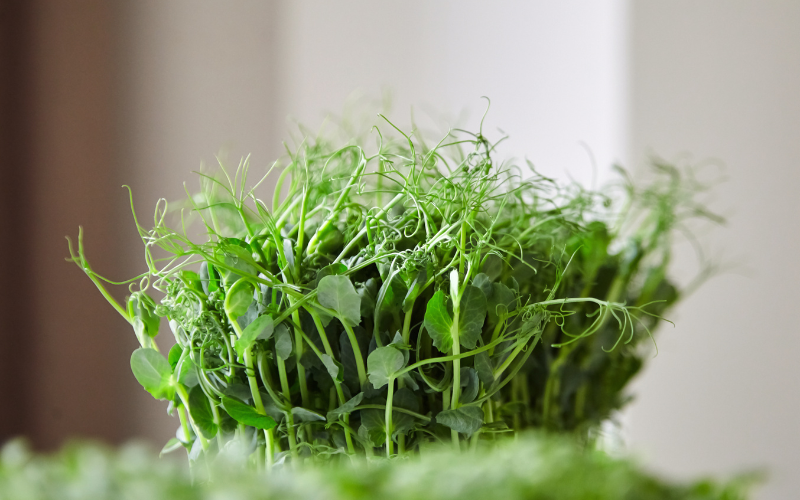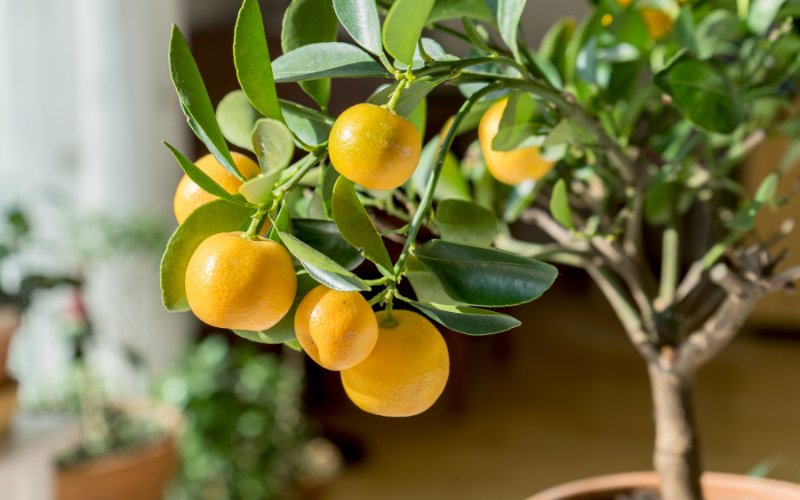Did you know that vegetable gardening during Winter is an option? Do you want to enjoy a fresh harvest without having to brave the cold? Then get started with growing vegetables on the windowsill and enjoy fresh delicacies on your plate in winter.
Grow vegetables on the windowsill
In winter it is too cold outside for most vegetables. But growing fruits, herbs and vegetables on the windowsill can be done all year round. So save some space and get started with the following indoor vegetable garden ideas.
1. Growing sprouts on the windowsill
With the sprouts of alfalfa, mung beans (bean sprouts), lentils or radish seeds you have a crunchy and tasty dose of extra vitamins within a week. Ideal if you are a bit impatient.

Growing sprouts
Buy special sprouting seed, because garden seed may be treated with chemicals. Sprinkle a layer of seeds in a jam jar, cover with water and soak overnight. Close the pot with muslin and, for example, an elastic band and let the water drain (the muslin works as a sieve, so the seed does not fall out). Place the pot of moist seed on a sunny windowsill and rinse with fresh, lukewarm water twice a day.
Harvesting sprouts
The seeds germinate within a few days. When the sprouts are 2.5-5 cm, you can eat them seed and all right out of the pot, fresher than fresh.
2. Let peppers hibernate
By preparing now make sure you can harvest more and earlier next summer.

Growing peppers
If you have a pepper plant that is now struggling to survive in the greenhouse, don’t throw it on the compost heap but bring it indoors. Place it on your warmest and lightest window sill, water only when the soil is dry and do not feed. The plants go dormant in winter and then drop their leaves. Water and feed again in the spring as soon as you see new leaves and put the plant back in the greenhouse after the last frost – then you will have a super harvest next year.
Harvesting peppers
Chili peppers hold their fruit well into winter, so what’s on the plant you can leave until you need it. You can also pick and dry or pickle the peppers. This way they stay good for months.
3. Grow mint indoors
Many herbs, such as mint, chives and marjoram, retain their fragrant foliage and flavor for a long time when you bring them indoors.

Grow mint
Mint is available for next to nothing in the garden center and the supermarket. Unlike most herbs, mint cannot withstand too much heat. So put it on a light windowsill in an unheated room. Keep the potting soil moist and feed it with liquid seaweed or a diluted herb fertilizer once every two weeks.
Harvest mint
Finely chop the leaves when cooking with them or make mint tea with a few sprigs. If you put the mint in a pot outside in the spring, you can continue to harvest throughout the summer.
4. Sow pea sprouts
The sprouts of peas, fresh off the windowsill, taste just as good as the freshly harvested pods, but within just a few weeks of sowing.

Growing pea sprouts
Sow pea seeds in a shallow seed tray. Fill halfway with potting soil and sprinkle generously with seeds. Don’t worry about spacing: pea sprouts need less space than full plants. Cover the seeds with a thin layer of soil and place the container on a sunny windowsill. Keep the potting soil slightly moist, but not wet. The seeds germinate within a week.
Harvesting pea sprouts
When the sprouts are about 10 cm long, cut them off with scissors 5 cm above the ground. Eat them raw in salads. Don’t empty the bin yet, as pea seeds often give a second crop.
5. Grow a citrus plant
Make your own orangery on the windowsill with calamondins or indoor oranges (Citrus x microcarpa), which hang all winter full of fleshy, spicy fruits among glossy green leaves.

Grow citrus plants
Buy ready-made trees and place them in a sunny, south-facing spot, but not near the heating. Avoid sudden changes in growing conditions. Give lukewarm water regularly but sparingly and special winter food for citruses every two weeks. Check for aphid and mealybugs on the branches and remove them. If possible, put the tree outside in the summer so that it gets more light.
Harvest citrus fruits
Pick the fruits when they are just starting to color. Don’t let them hang until they are ripe or they will become too soft. The flesh of calamondins is quite sour, so it is best to cook them and make a delicious marmalade, for example.
Enjoy your vegetable gardening on your windowsill this winter!

